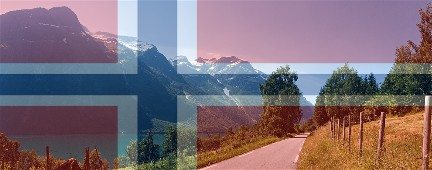Labor & Economy
Fjord Foundation: Norway’s Solid Safety Net

Aqwis/Wikipedia
The great journalist Lincoln Steffens visited the USSR shortly after the Russian Revolution and infamously declared that he had “seen the future and it works.” My wife Mickey and I recently returned from a touristic trip to Norway, Sweden and Denmark. Most of our time was spent in typically touristic ways, but inescapably (and with help from our excellent tour guides) we got a taste of policy and politics in the current Scandinavian way. What we learned makes me want to say that we saw one future that seems to be working.
Norway is still responding to the horrifying July 22 terrorist massacre—but Norwegians are likely to say, as did Prime Minister Jens Stoltenberg: “You will not destroy our democracy or our commitment to a better world. We are a small but proud nation . . . but no one will ever frighten us away from being Norway . . . the answer to violence is even more democracy, even more humanity, but never naiveté.”
“Being Norway” is, on one level, nationalistic rhetoric. But what Norwegians overwhelmingly mean by this is not just pride in their heritage and the magnificent outdoors they inhabit, but commitment to a particular vision of the good society. It is a vision that is strongly egalitarian and that sees shared wealth and commonwealth as the keys to the future.
Except for tiny European enclaves like Luxembourg, Norway today appears to have one of the highest living standards on the planet. The minimum wage is $22 an hour, and education through college and healthcare are free. Yet this high-wage economy has an unemployment rate of only 3.6 percent. (Throughout Scandinavia, it is taken for granted that unemployment compensation will be high enough and last long enough so that the jobless can maintain a decent living standard in the interim.)
These numbers contradict the assumption that in a global economy high wages for ordinary workers is a major reason for stagnation and unemployment. Norway’s taxes are very high: The price of anything you buy includes about 25 percent in taxes. Accordingly, prices for ordinary purchases are mind boggling. That’s a big problem for even affluent American tourists like ourselves—but Norwegian middle-class folk have much more purchasing power than their U.S. equivalents because wages are so high.
The backbone of Norway’s economic growth has been the North Sea oil development. It is very important to note that the Norwegian oil industry is a government enterprise, so Norwegians are not burdened by a corporate oil industry aiming to shape policy. The profits of oil development go almost entirely into a national wealth trust designed to provide all Norwegians with old-age pension security. Five million Norwegians own almost a trillion dollars in assets. Only four percent of these assets, however, are spent on domestic Norwegian public needs—the rest is being saved.
Norwegians complain that their infrastructure needs more investment—our guide was constantly pointing out that the roads need improvement. If you know Norway, you know that road building is difficult given its mountainous terrain (mostly granite), huge fjords, and long narrow configuration. But everywhere we went we observed large efforts to tunnel through those mountains.
Norway isn’t counting on oil for future energy needs and has ruled out nuclear power. There, water power = electricity, although care is being taken not to spoil the natural vistas. The country has been developing high-speed rail and new industry to replace declining manufacturing— new industry whose products will compete on the basis of quality and will be produced under strong environmental regulation. The high taxes Norwegians pay buy this entire infrastructure and, along with it, the preservation of the natural world Norwegians love.
So here’s a place where austerity is not a topic, where government enterprise and public planning are valued, where taxes are very high—and where poverty and super concentration of wealth don’t exist. Everywhere you turn, there is a living reality that contradicts the assumptions that Americans, and not only those on the right, make these days about how the world has to work. It seems plausible that our economic woes can’t be overcome unless we start taking Norway’s example seriously.

-

 Column - State of InequalityJanuary 22, 2026
Column - State of InequalityJanuary 22, 2026On Eve of Strike, Kaiser Nurses Sound Alarm on Patient Care
-

 Latest NewsJanuary 21, 2026
Latest NewsJanuary 21, 2026Honduran Grandfather Who Died in ICE Custody Told Family He’d Felt Ill For Weeks
-

 Latest NewsJanuary 22, 2026
Latest NewsJanuary 22, 2026‘A Fraudulent Scheme’: New Mexico Sues Texas Oil Companies for Walking Away From Their Leaking Wells
-

 The SlickJanuary 23, 2026
The SlickJanuary 23, 2026Yes, the Energy Transition Is Coming. But ‘Probably Not’ in Our Lifetime.
-

 The SlickJanuary 27, 2026
The SlickJanuary 27, 2026The One Big Beautiful Prediction: The Energy Transition Is Still Alive
-

 Column - State of InequalityJanuary 29, 2026
Column - State of InequalityJanuary 29, 2026Are California’s Billionaires Crying Wolf?
-

 Latest NewsFebruary 3, 2026
Latest NewsFebruary 3, 2026Amid the Violent Minnesota Raids, ICE Arrests Over 100 Refugees, Ships Many to Texas
-

 Dirty MoneyJanuary 30, 2026
Dirty MoneyJanuary 30, 2026Amid Climate Crisis, Insurers’ Increased Use of AI Raises Concern For Policyholders

